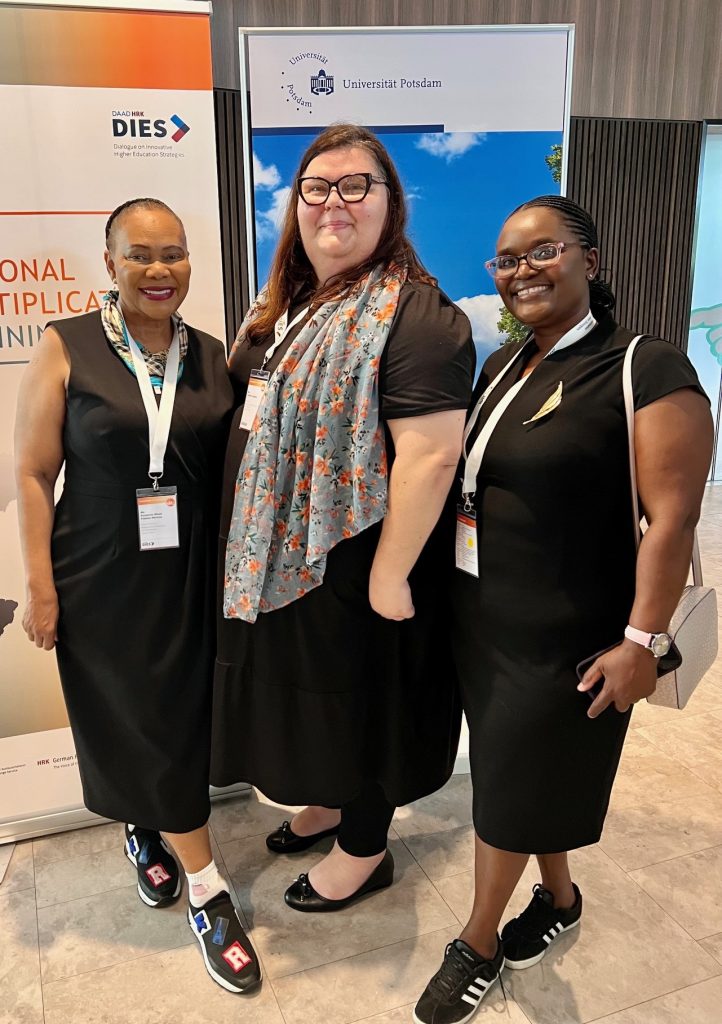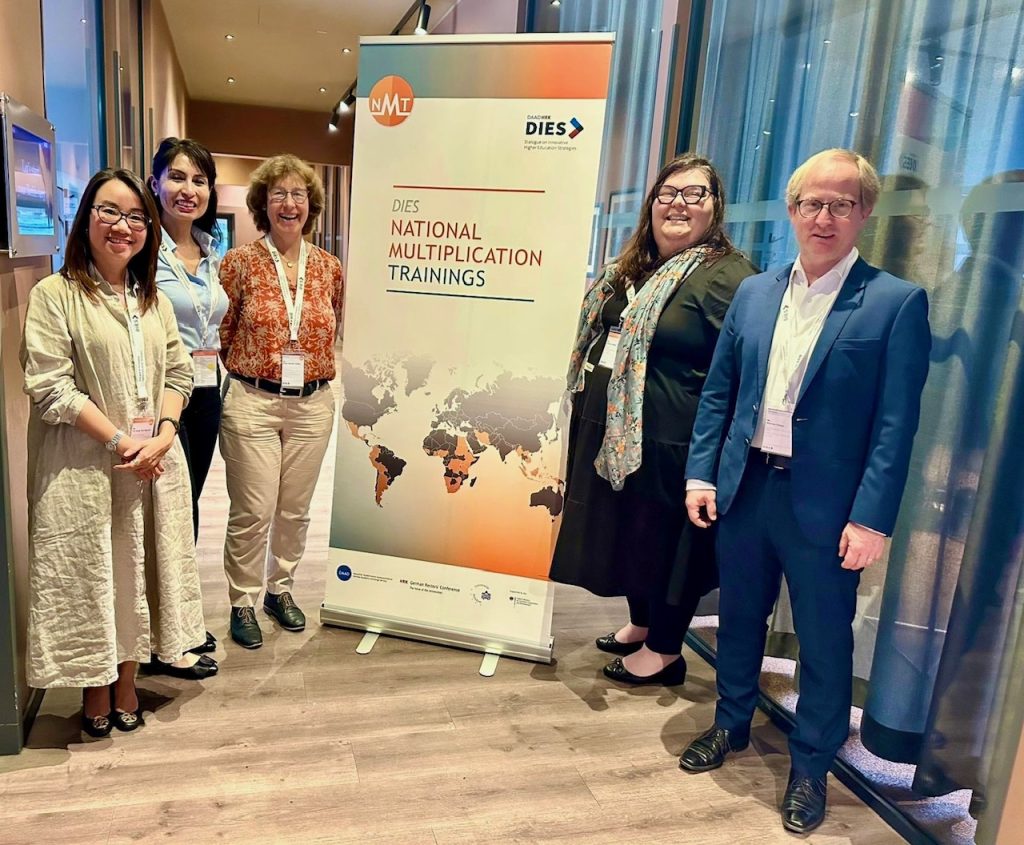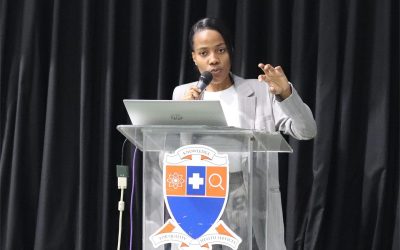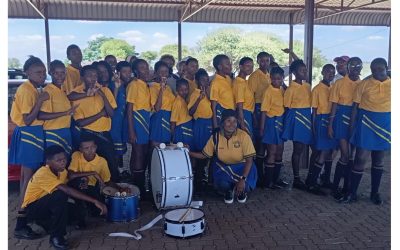It began with a vision: to open doors, build bridges and connect South African universities to the world. That vision has now become a reality, as Sefako Makgatho Health Sciences University (SMU) has secured prestigious funding from the German Academic Exchange Service (DAAD) to deliver a transformative internationalisation training programme for higher education institutions across South Africa.
 This milestone reflects SMU’s enduring commitment to excellence, integrity, diversity, respect and accountability—the values that guide the University’s growth and global engagement. For a directorate that is only in its third year, the achievement highlights SMU’s ability to make a meaningful impact on the international higher education landscape.
This milestone reflects SMU’s enduring commitment to excellence, integrity, diversity, respect and accountability—the values that guide the University’s growth and global engagement. For a directorate that is only in its third year, the achievement highlights SMU’s ability to make a meaningful impact on the international higher education landscape.
At the heart of this success is Dr Carlien Jooste, Director of Internationalisation at SMU and an alumna of DAAD’s Dialogue on Innovative Higher Education Strategies (DIES) programme. Drawing on her expertise, Dr Jooste collaborated with Dr Mbali Mkhize and Dr Zamaqwabe Sishi from Mangosuthu University of Technology to develop an innovative proposal entitled Building Bridges: Developing Internationalisation Skills for Professional Staff in South African Universities. Their concept impressed adjudicators in the highly competitive National Multiplication Training (NMT) programme, jointly initiated by DAAD and the German Rectors’ Conference (HRK) and funded by the German Federal Ministry for Economic Development and Cooperation (BMZ).
The NMT programme, coordinated by the Centre for Quality Development at the University of Potsdam, enables DIES alumni to deliver capacity-building initiatives in their regions. Applications were received from Africa, Latin America and Southeast Asia. Out of dozens of submissions, only thirteen proposals were approved globally, seven from Africa. The SMU–MUT collaboration proudly emerged as the only South African project selected, highlighting the strength and originality of their approach.
Reflecting on the achievement, Dr Jooste said: “As two Historically Disadvantaged Institutions and a female-led training team, we were ecstatic when we received the news that our proposal had been accepted. This is not just a personal victory, but an important milestone for SMU and a step forward for higher education in South Africa.”
 The training programme, due to open applications in September 2025, will focus on empowering professional staff—the operational backbone of universities—with the knowledge and skills required to advance internationalisation. These staff members, working in areas such as admissions, finance, student affairs, marketing, communications and human resources, play a vital role in implementing a university’s international strategy, yet their impact is often overlooked.
The training programme, due to open applications in September 2025, will focus on empowering professional staff—the operational backbone of universities—with the knowledge and skills required to advance internationalisation. These staff members, working in areas such as admissions, finance, student affairs, marketing, communications and human resources, play a vital role in implementing a university’s international strategy, yet their impact is often overlooked.
Jooste explained: “Most of the work in International Offices across South Africa is carried out by administrative staff. They keep internationalisation moving, yet many colleagues in other departments do not realise how important they are to this ecosystem. Our goal is to build capacity, foster collaboration and make internationalisation a shared responsibility across the university.”
She added, “As a team from Historically Disadvantaged Institutions, we understand the gaps and challenges that exist. This training aims to address those gaps and promote excellence, diversity, respect and accountability—values that SMU stands for. This initiative is about more than training; it is about creating a culture of integrity and innovation that positions South African universities on the global stage.”
This achievement underscores SMU’s growing role as a leader in shaping internationalisation within higher education. Beyond the funding and recognition, it reflects the University’s determination to embrace innovation, cultivate partnerships and create opportunities that transcend borders. By empowering professional staff, SMU is investing in the people who drive its mission forward, ensuring that internationalisation is understood, valued and embedded across campuses.
From a young directorate to international recognition, SMU is charting a bold course for the future. This milestone demonstrates that vision, collaboration and commitment to core values can transform institutions, empower individuals and position South African universities as global players in higher education.
By Dimakatso Modise



